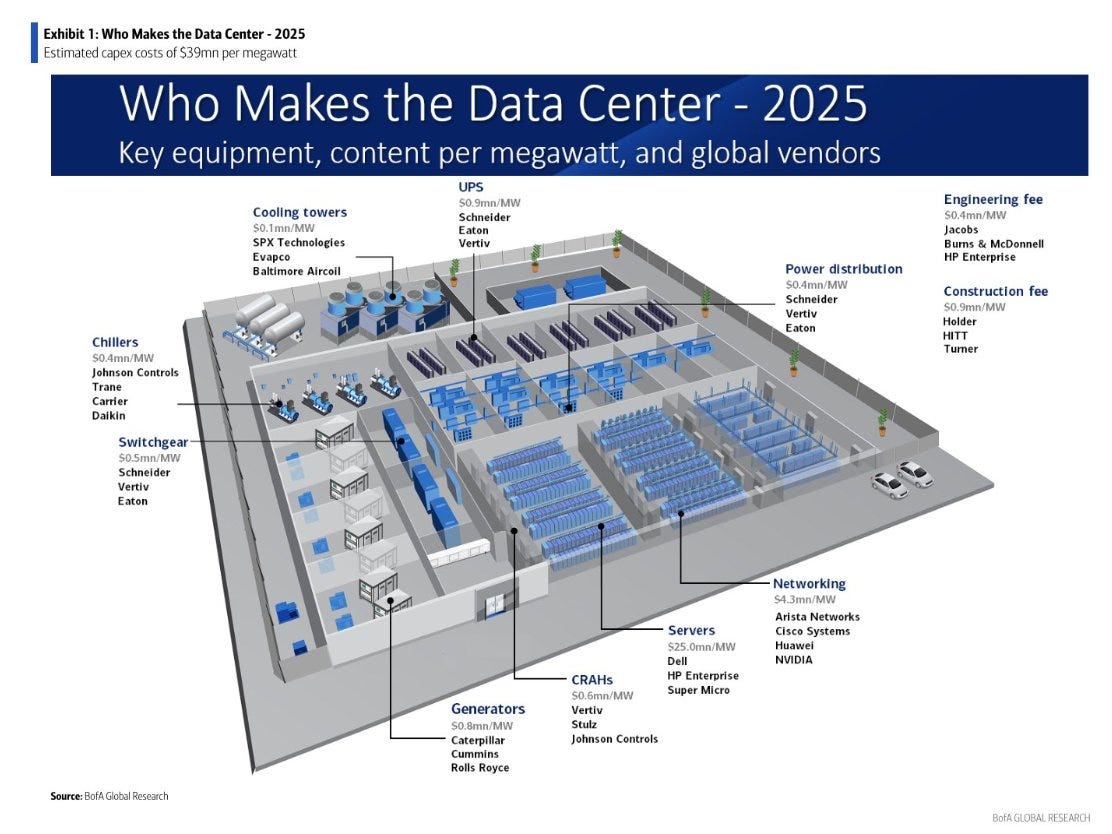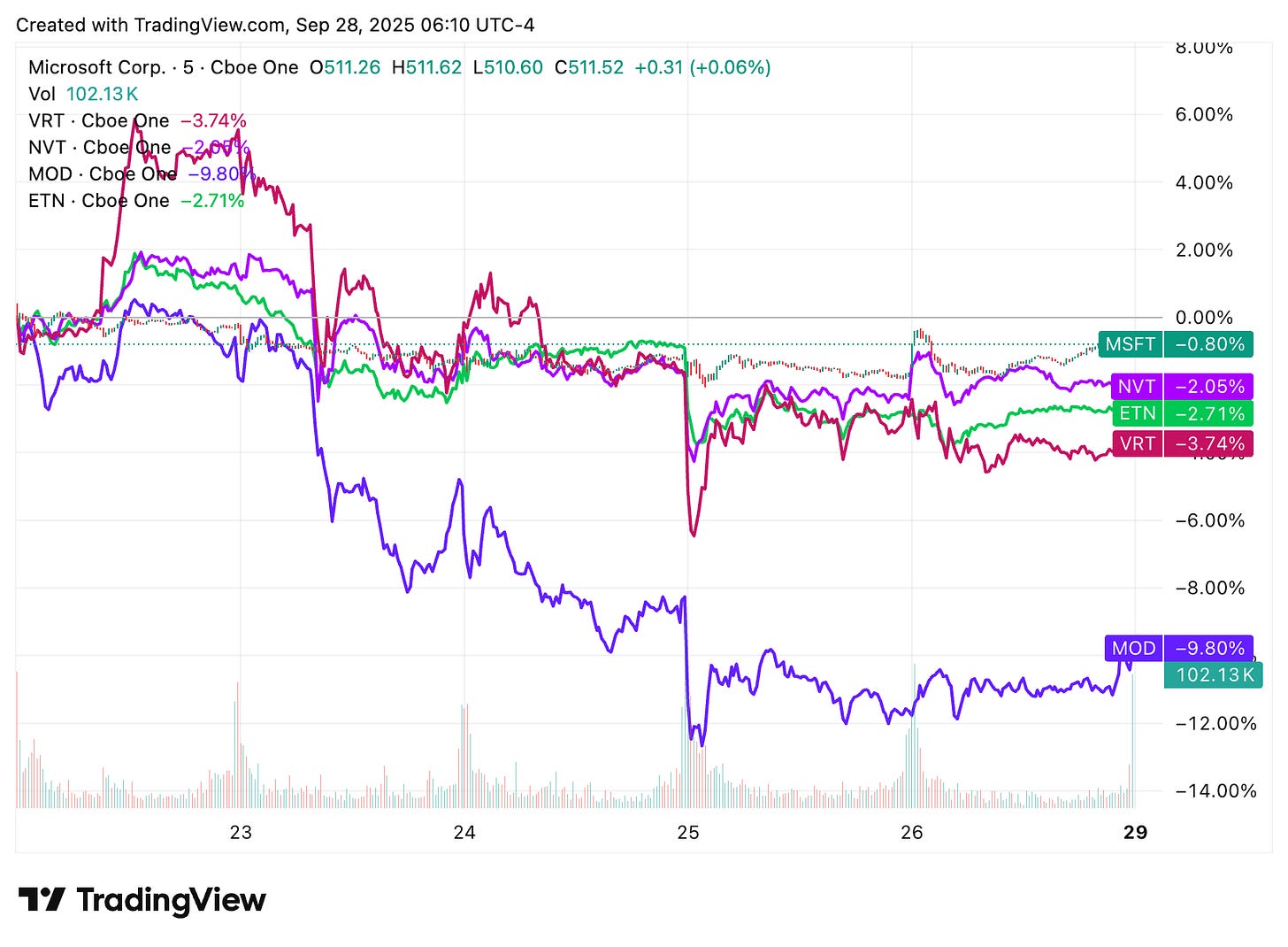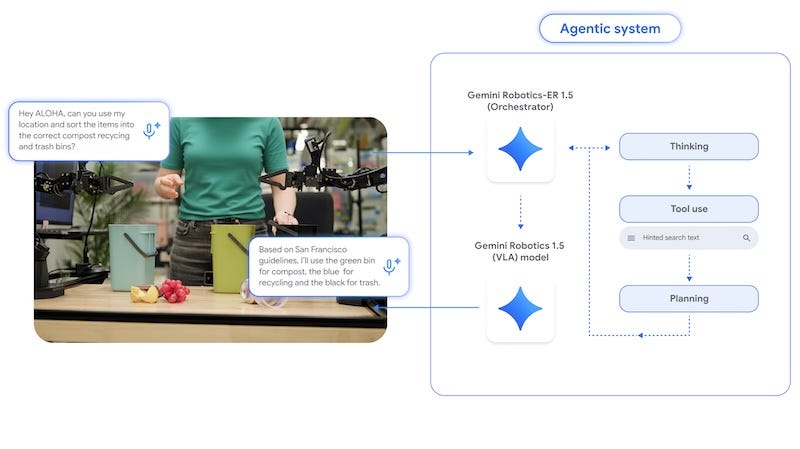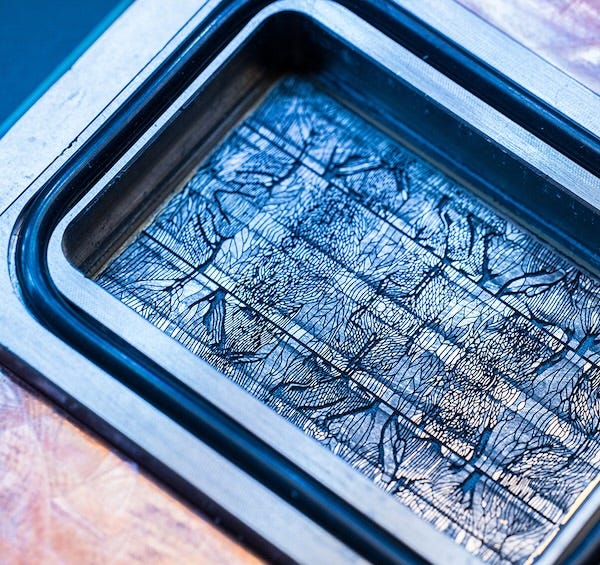Distributed Small AI Factory Towns
This week: Hard-Tech Wind-Down (paid), peer-to-peer manufacturing marketplaces, growing diamonds, real-time inventory visibility, AI agents into the physical world, who makes the data center.
Shop Talk
Capturing this week’s zeitgeist
The story of Marion, Ohio, serves as a case study on the volatility of factory towns. The town’s initial success was built on industrial giants of their time, companies like Marion Power Shovel and Huber Manufacturing Company, who provided growth but also left the community financially dependent. When global shifts and factory closures hit, this lack of diversification led to severe economic decline. Marion’s eventual self-rescue involved a shift in philosophy: consciously moving away from waiting for the next “big plant” and instead focusing on cultivating a more resilient, diversified ecosystem of many smaller, locally-owned manufacturing and service businesses.
As manufacturing technology continues to advance, driving efficiency and automation, how can we leverage these tools (like distributed or additive manufacturing) to build economically resilient, diversified industry in towns like Marion, rather than simply concentrating production into a single mega-factory? Perhaps, Oakland County, Michigan has an approach below.
📅 Next up: The Battery Show, Detroit, Michigan, October 6th-9th
Assembly Line
This week’s Industry 5.0 breakthroughs and frontier technologies of the built world.
🔋🚙 The State of EVs
The SAE Automotive Engineering podcast will feature interviews with automakers, regulators, suppliers, academics, and really anyone who has their finger on the pulse of the automotive world. Each episode will feature a topic, and we’ll conduct multiple interviews with people in the industry about that topic. This month, we speak with Slate Automotive and BMW about their upcoming electric vehicles and how each company is navigating the current state of electric vehicles.
💎 The Complex Tech Behind Growing Diamonds in Minutes
Diamonds grown in a lab aren’t just for jewelry; the fundamental technology is a rapidly advancing field with much broader applications. WSJ goes inside the global innovation center at Element Six, one of the world’s leading synthetic diamond labs, which grows diamonds for a wide and rapidly increasing range of uses — from drill bits to medical equipment and laser components. One day, its diamonds could even be used in semiconductors, but getting there will take some significant advances.
Why a Defense Startup Built a U.S. Supply Chain for Its 3D Printer /WSJ/
⛓️🧠 AI tool puts an end to Starbucks stock shortages
The technology, developed in collaboration with NomadGo, is currently being used in ‘thousands of coffee shops’ and will be rolled out to all company-operated cafés in North America by the end of September. ”In cafés that use the AI systems, inventory is now counted eight times more often, giving us real-time insight and enabling us to restock faster and more accurately,” says Deb Hall Lefevre, Chief Technology Officer at Starbucks.
In addition to computer vision, the technology also uses 3D spatial intelligence and augmented reality to automate various aspects of inventory management. For example, employees can easily scan refrigerators and storage areas in shops using the cameras on their tablets. The system then automatically records the quantity and type of ingredients. According to Lefevre, the technology will likely soon be able to automate various replenishment orders as well.
Read more at Supply Chain Movement
“AI in supply chain will be productive within a few years” /Supply Chain Movement/
Amazon Business Seeks ‘Deeper Integration’ With Manufacturing Operations /IEN/
New Product Introduction
Highlighting new and innovative facilities, processes, products, and services
🖨️ Automation Alley’s Project DIAMOnD Launches Peer-to-Peer Marketplace for Distributed 3D Printing
Project DIAMOnD, the nation’s largest distributed 3D printing network led by Automation Alley and funded by Oakland County, has launched its new additive manufacturing marketplace – a secure, peer-to-peer platform where companies can submit 3D printing jobs at scale, and participating small manufacturers across Michigan can fulfill those jobs collaboratively.
The marketplace is designed to leverage the full network of printers for secure commercial transactions, while also protecting intellectual property of the designs. Orders are distributed across participating manufacturers, with costs and payments shared to ensure that every company contributing gets its piece.
Read more at PR Newswire and Project DIAMOnD
🧠🦾 Gemini Robotics 1.5 brings AI agents into the physical world
Gemini Robotics 1.5 – Our most capable vision-language-action (VLA) model turns visual information and instructions into motor commands for a robot to perform a task. This model thinks before taking action and shows its process, helping robots assess and complete complex tasks more transparently. It also learns across embodiments, accelerating skill learning.
Gemini Robotics-ER 1.5 – Our most capable vision-language model (VLM) reasons about the physical world, natively calls digital tools and creates detailed, multi-step plans to complete a mission. This model now achieves state-of-the-art performance across spatial understanding benchmarks.
Read more at Google DeepMind
Discovering new solutions to century-old problems in fluid dynamics /DeepMind/

As industrial technology changes so does the fortunes of companies supporting data center build out. See this article for Who Makes Data Center 2024. Also, go inside Meta’s Louisiana data center build with Aaron Witt and community concerns.

Business Transactions
This week’s top funding events, acquisitions, and partnerships across industrial value chains.
🇨🇭 ANYbotics raises over €127 million for its four-legged workforce
Zurich-based ANYbotics announced that they have raised a total funding of over €127 million to support their continued global expansion and help to bring the new ANYmal X model to market – due in part to a recent investment by Climate Investment (CI). With this investment, CI joins investors Aramco Ventures, Bessemer Venture Partners, NGP Capital, Qualcomm Ventures, Supernova Invest, Swisscom Ventures, TDK Ventures, and Walden Catalyst Ventures.
The company is now gearing up to start customer deliveries of ANYmal X, the world’s first Ex-certified legged robot, purpose-built for hazardous and explosive environments. With CI’s investment and deployment support, ANYmal X will be brought to market in 2026 to enable safe, continuous inspection in explosive zones, directly addressing critical operational challenges.
Read more at EU Startups
🇨🇭 Corintis raises $24M to target the next AI bottleneck, and collaborates with Microsoft for chip cooling breakthrough
Coming out of stealth mode, semiconductor cooling startup Corintis has announced that it has raised a $24M Series A to address this problem. The round was led by BlueYard Capital with participation from Founderful, Acequia Capital, Celsius Industries, XTX Ventures, among others. Corintis also announces that it will be opening multiple US offices to better serve its American customers in addition to an Engineering office in Munich, Germany. To date, the company has raised $33.4M in total. As part of this funding, Chairman of Walden International and Intel CEO Lip-Bu Tan has joined as a board director and investor prior to becoming Intel CEO, in addition to Geoff Lyon (former CEO & Founder of CoolIT), also joining the board. With this addition to the board, Corintis doubles down on building a bridge between the worlds of semiconductor design, manufacturing, and chip-cooling.
Alongside Microsoft, they have successfully tested a new cooling system that removed heat up to three times better than cold plates, an advanced cooling technology commonly used today. It uses microfluidics, an approach that brings liquid coolant directly inside the silicon – where the heat is. Tiny channels are etched directly on the back of the silicon chip, creating grooves that allow cooling liquid to flow directly onto the chip and more efficiently remove heat. The team also used AI to identify the unique heat signatures on a chip and direct the coolant with more precision.
Read more at Globe Newswire and Microsoft
🇩🇪 enaDyne raises €7M to electrify chemical production with plasma catalysis
Based in Leipzig, enaDyne is tackling this chemical production with a novel approach: fully electric, modular non-thermal plasma catalysis reactors. These systems convert CO₂ and other industrial emissions into valuable chemicals such as methanol and ethylene while simultaneously breaking down stubborn pollutants like CF₄ and PFAS, compounds notoriously difficult to treat with conventional methods.
The company recently closed a €7 million seed funding round co-led by Amadeus APEX Technology Fund (a collaboration between Amadeus Capital Partners and APEX Ventures) and Energy Capital Ventures, with participation from Antares Ventures, Possible Ventures, and returning business angels Wolfram Drescher, Andreas Werne, and Sven Sieber. This investment builds on a total of roughly €15 million raised so far and will accelerate the scale-up of enaDyne’s breakthrough technology.
Read more at TFN
Want more? Check out the paid analysis and 100+ bonus reads below 👇






